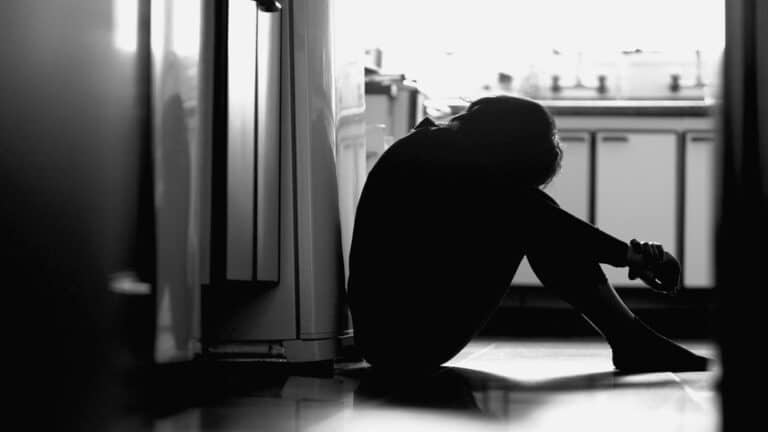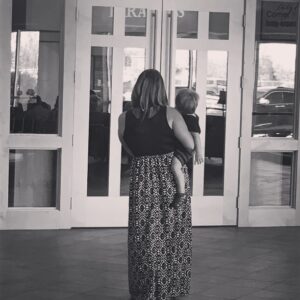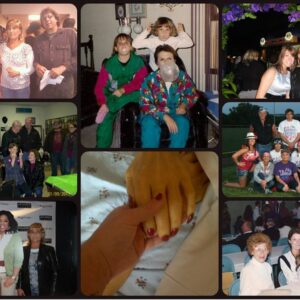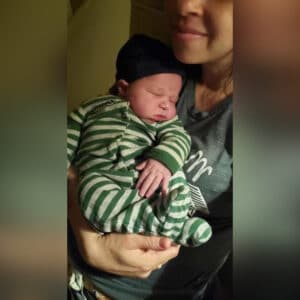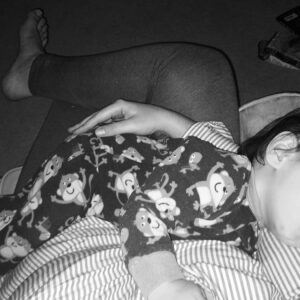It’s so utterly destructive. It’ll knock the wind—no the very oxygen—out of your sails. It’s nauseating. Conflicting. Terrifying. And so very, very confusing.
I did not know what to do with the information. The way I received this information made it more painful and confusing. I was angry.
My mom and I have never had a good relationship. She had her demons to fight, but by the time I was born, she must’ve been done fighting them. She showed one picture to the outside world, a perfect and happy family. But behind closed doors, it was just like the negatives of real pictures: dark and exactly the opposite.
I managed to get away, somehow, from an upbringing that was riddled with conditional love, unrealistic expectations, and pain. Those of us who have lived this will know these terms all too well: a scapegoat to the narcissistic mother.
I spent a great deal of my life thinking something was wrong with me for my own mother to not even like me, let alone love me, and trying so desperately to win her over. It’s been tough.
RELATED: It’s Lonely As the Daughter of a Narcissistic Mother
When I saw her behavior and favoritism transfer to my own children, I knew I had to make a radical decision. I reasoned with her, but it went nowhere. It made things worse. And consequently, we ended up severing that sacred mother/daughter tie.
I’m not going to lie and say it was easy. Though a relief, it’s a void that will always remain. It’s hard to describe to those who haven’t lived it, but it’s lonely, exhausting, relieving, confusing, heartbreaking, and peace-giving all at once.
I went to therapy as the “but that’s your MOTHER” comments started flying, and my guilt started making me doubt myself again. But therapy actually helped me in more ways than one. It allowed me to see that it’s not something I did or something I am. It’s the dysfunctional dynamic of the narcissistic mother’s family. And she, too, was a product of her upbringing. It was up to me to break the cycle.
I gained tools on how to deal with her in case I’d ever want to reevaluate our contact, which happened five years later. We carefully cracked open the door of communication. We held cautious, short conversations, and we didn’t fight. I knew how to deal now, and it was liberating. Once we’d start leaning toward an argument, I’d take my leave from the conversation. I still didn’t involve my children, as they wished to remain no contact, but she never asked about them either.
Suddenly, I receive a message from my father. He’s been living his life on his own terms, and I don’t know where he is most of the time. He travels for work globally.
His message said if I weren’t in contact with my mother yet, now would be the time to reach out as she’s quite ill. I told him we were in contact, but she didn’t tell me anything.
I came to find out she had had an entire high-risk surgery already and hadn’t told me.
It hurt. She could’ve died on the table, and I wouldn’t have known. I couldn’t help but feel like it was yet another attempt at making me look like that horrible daughter she wants the world to see me as. Who doesn’t know their mother is that ill?
I decided to take my concerns and feelings to God, and He gave me peace of mind and comfort. I was able to reach out to her again and calmly talk about her recovery without pointing fingers or causing another fight.
RELATED: You’re Still Allowed To Grieve the Loss of a Toxic Mother
We spoke regularly on WhatsApp. Weeks and months passed. Then suddenly, a status update on WhatsApp knocked the wind out of my sails: A goodbye message to “friends and family.”
Her cancer had returned aggressively and she was no longer curable. How do I, as a daughter, respond to a WhatsApp status update like that? How was I supposed to react? Why was I deemed just another WhatsApp number in her contact list? What do I do with this information? This incredible hurt from the way such a bomb was dropped on me?
It took me a few days to remember that this isn’t about me. Or my feelings. It’s about her. So I reached out. I’m glad I did, but I’m confused and conflicted at the same time.
It breaks my heart to know she’s in such pain, and I can’t even visit. We live on opposite sides of the world. Am I even allowed to grieve? We have never seen eye to eye. Am I allowed to feel devastated by the thought of losing my mom, who I’ve fought with most of my life? Is it allowed?
I look in the mirror and wonder if it’s judging me as a hypocrite. I don’t know how I’m supposed to feel or what the correct response is, but what I do know is that she’s my mom. The only one I have. And she’s dying on the other side of the world.
It hurts so bad. I did not know it would hurt this much. I’m losing my mom. Again. But this time, she won’t be a WhatsApp message away. And all I’ll allow myself to do is silently cry in the bathroom where nobody but God can see.

If you liked this, you'll love our book, SO GOD MADE A MOTHER available now!
Order NowCheck out our new Keepsake Companion Journal that pairs with our So God Made a Mother book!
Order Now

